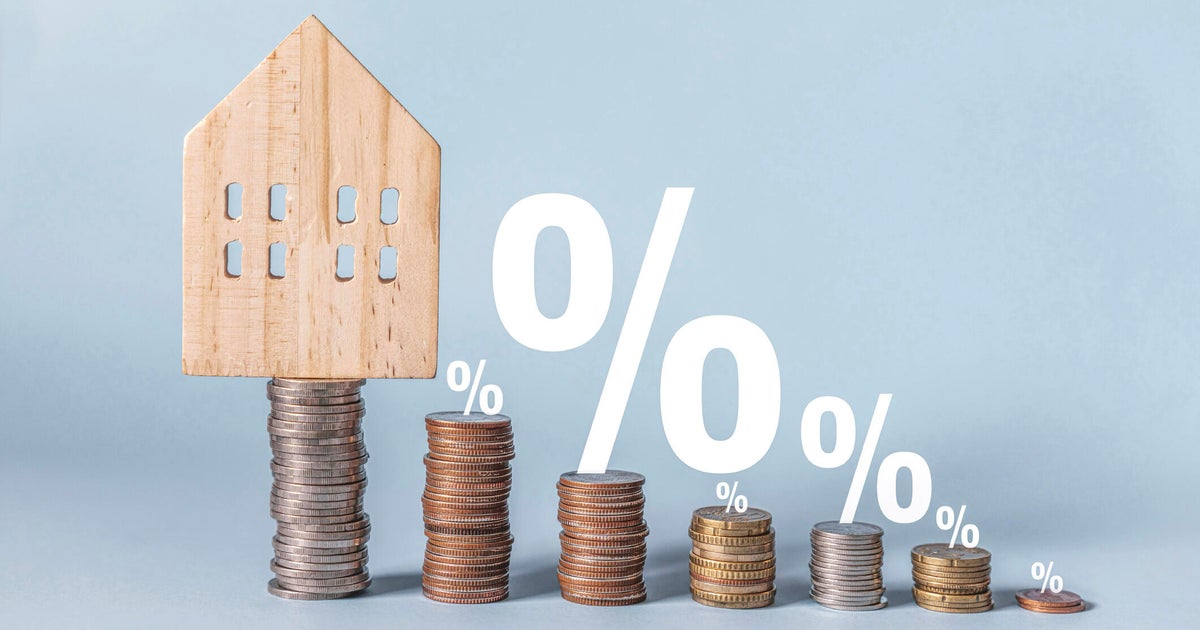When will mortgage interest rates drop? Here's what experts think
Multiple Federal Reserve rate hikes — resulting in the highest federal interest rates in more than 20 years — and tough conditions for buyers have taken their toll on the housing market. Over the past year, home sales fell by nearly 19% as home prices dipped by 0.9%, according to the National Association of Realtors.
Higher interest rates make it difficult for not only for prospective homebuyers to purchase homes but also for existing homeowners to refinance. Today's high rate environment means some homeowners can't access interest rates that are actually lower than their current mortgage, or low enough to make a significant difference.
It's impossible to predict the future — when or if mortgage rates is anyone's guess — but we wanted experts to weigh in. Understanding where interest rates are headed can help you better understand your options now and in the future.
Explore your mortgage refinancing options now and see what rate you qualify for.
When will mortgage interest rates drop?
As further Fed rate hikes remain uncertain, organizations like Fannie Mae and the Mortgage Bankers Association have forecasted declining average rates on 30-year fixed-rate mortgages throughout 2023, continuing into the first quarter of 2024.
Peter Idziak, senior associate at Polunsky Beitel Green, says "if the Fed stops raising because the data shows the economy weakening and inflation coming down further, then I would expect mortgage rates to decrease during the second half of 2023."
Chief Economist at First American Financial Corp, Mark Fleming, predicts an interest rate drop may not happen for several months. "Possibly in 2024, but it will depend on the Fed's decisions about raising rates in the second half of the year," says Fleming. "And even if they do go down, it won't be back to the rates of yesteryear. 6% mortgage rates used to be normal, and that's more reasonable to expect too."
Adam Sharif, founder and chief strategist of nxtCRE, a platform for commercial real estate investors, agrees: "If rates go down, it will be next year and not by much. Today's interest rates are considered normal by historical measures."
Want to know what you can qualify for in today's market? Find out here now.
Is now a good time to buy a home?
While rising interest rates disadvantage many homebuyers, they can still present a good opportunity to buy a home, particularly investors. If you intend to hold onto a property as a long-term investment, the home's value may appreciate significantly over time, potentially outweighing the costs of higher interest rates. If interest rates do eventually drop, you can always choose to refinance your mortgage at a lower rate when available.
"There is some truth to the saying 'marry the house, but date the rate,'" says Idziak. "Home inventory is still very constrained in many areas, so a potential buyer who finds a home she loves may be better served by purchasing now, even with rates elevated, and hope to refinance in two to three years when rates may be lower."
In some scenarios, it may also make sense to buy a property for rental purposes, even in a high-interest environment. Depending on rental rates in your area, among other factors, the income generated from your rental could offset a portion, if not all, of your mortgage expenses. You might even be able to leverage the tax benefits of owning a rental property.
Is it a good idea to refinance today?
Refinancing a mortgage means you're replacing your existing home loan with a new one, ideally with a lower interest rate. With rates around double what they were in 2020, refinancing may not be the best option for anyone who took out their existing mortgage before the Fed began its aggressive rate hike schedule.
"For borrowers who refinanced during the historically low rates from 2020 to 2022, it might not make sense to refinance in the current rate environment," says Idziak. "However, borrowers that can take advantage of the increase in home values over the last few years may still find it advantageous to refinance in order to tap equity in the home or to remove private mortgage insurance."
There are other scenarios in which refinancing might prove beneficial, such as:
- If you want to pay off your mortgage sooner. Refinancing your home loan from a 30-year to a 15-year term could potentially result in significant overall cost savings, despite higher interest rates. Shorter loan terms tend to have lower interest rates than mortgages with longer terms.
- If you have an adjustable-rate mortgage (ARM). Homeowners with adjustable rate mortgages (ARMs) who face the potential of fluctuating monthly payments might consider transitioning to the stability of a fixed-rate mortgage.
- If you want a lower interest rate. Some homeowners may still have higher interest rates on their existing mortgages than lenders currently offer. For example, they may have secured their mortgage when rates were high in the past, or perhaps a lower credit score at the time of their loan application resulted in a high-interest mortgage.
Explore your mortgage refinancing options here to see if it makes sense to act now.
The bottom line
Watching interest rate trends can help homebuyers and homeowners better understand the market so they don't make decisions blindly. But attempting to time the market isn't always the best strategy for any type of investing, including real estate. Base your choice on your budget and goals and before you make a decision, do your due diligence and run the numbers to determine how much you'll pay and what you could save.




